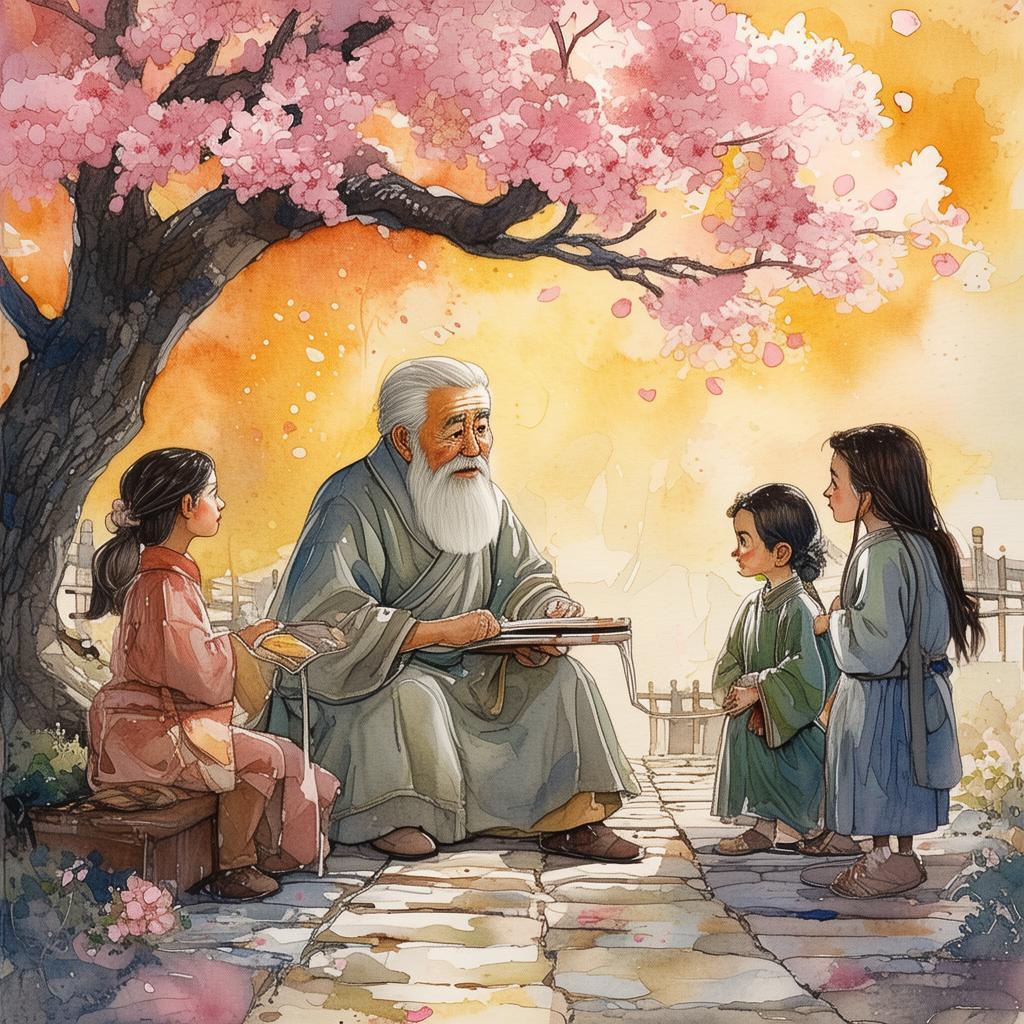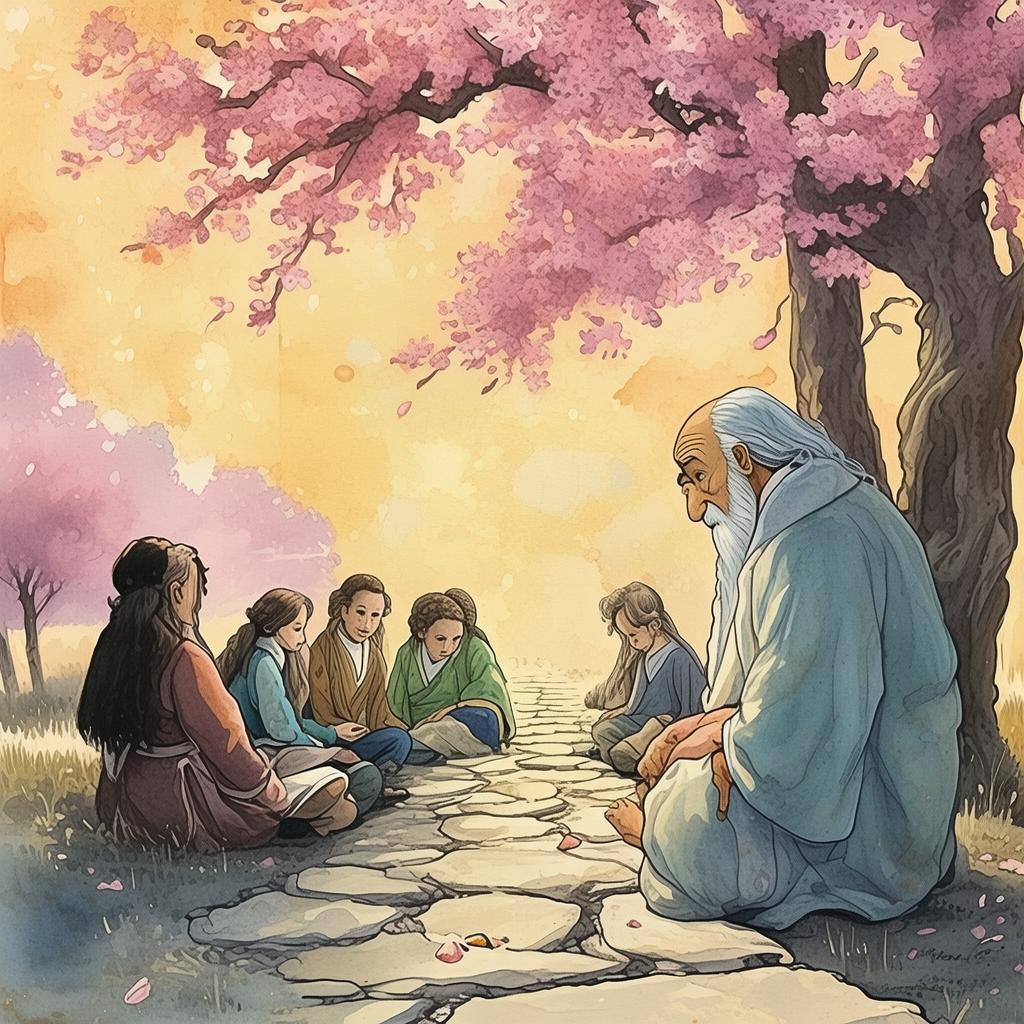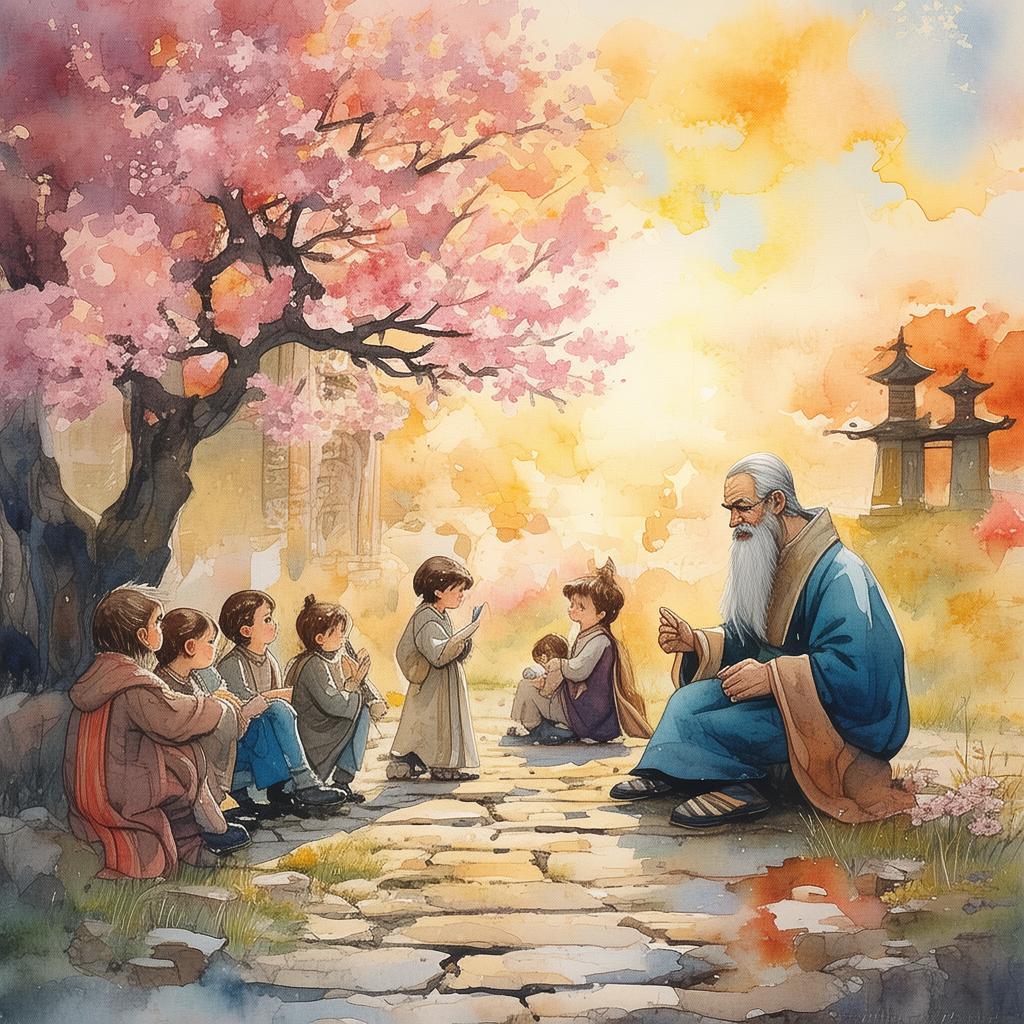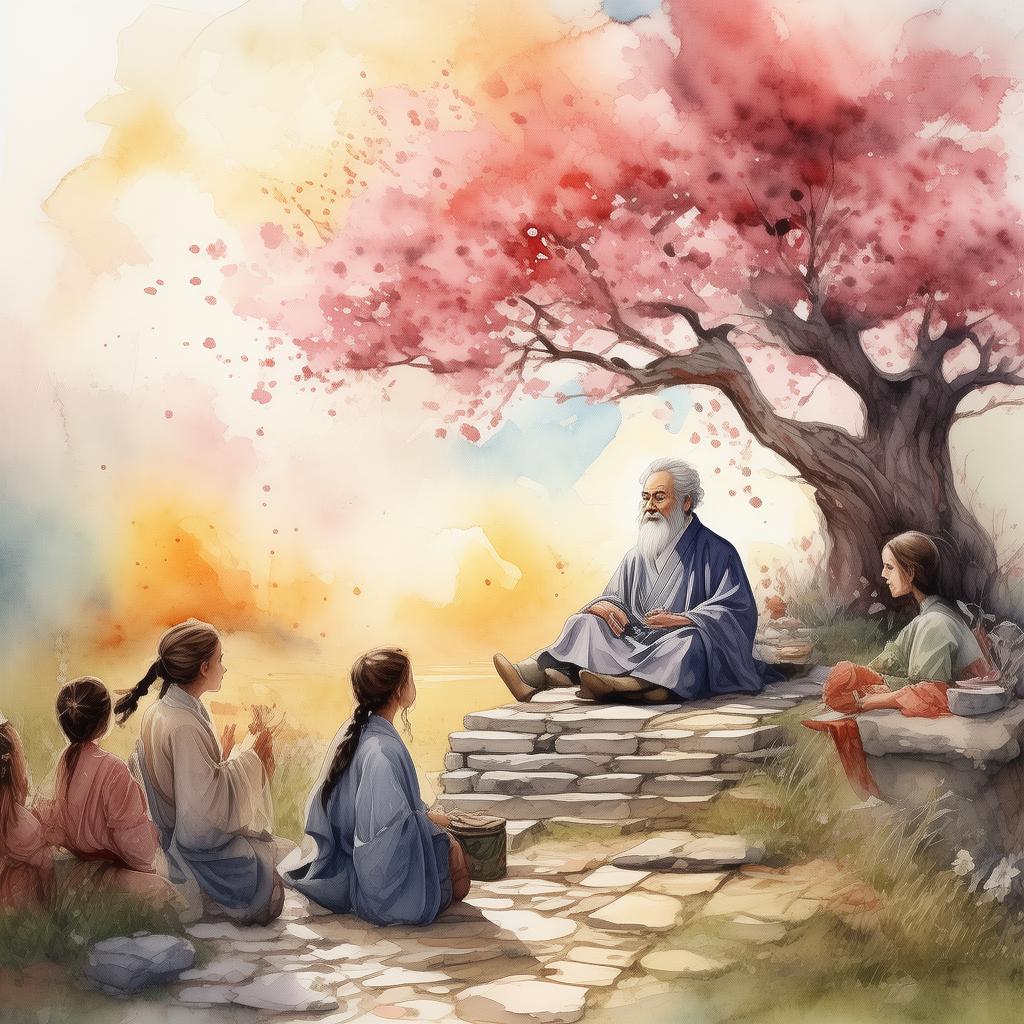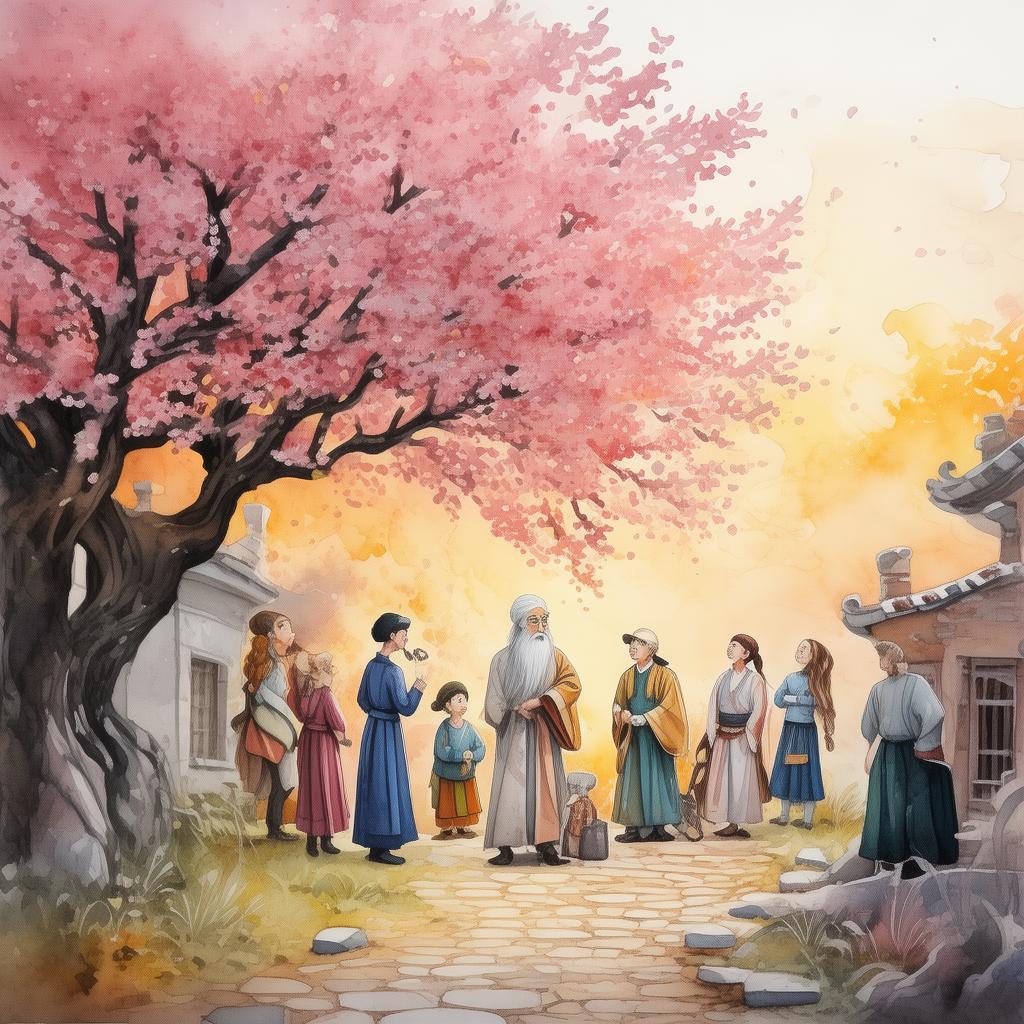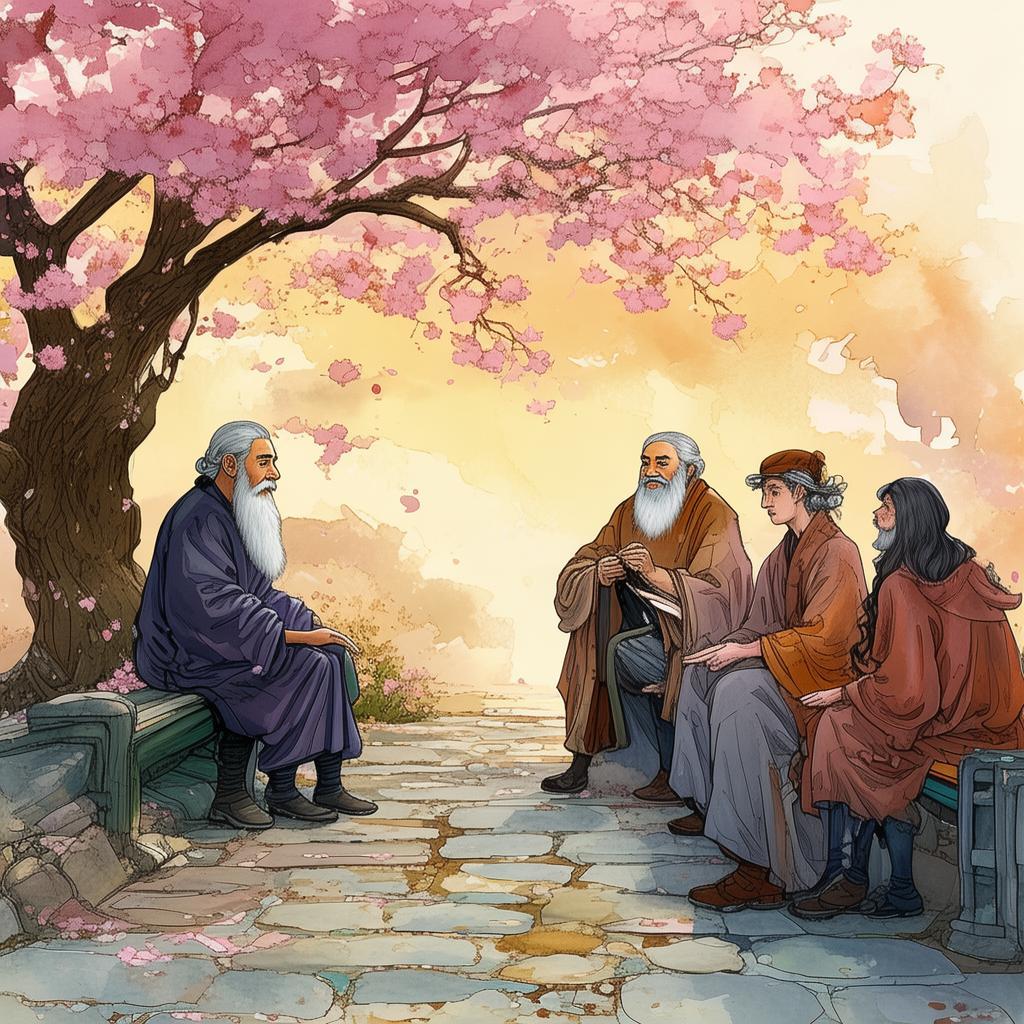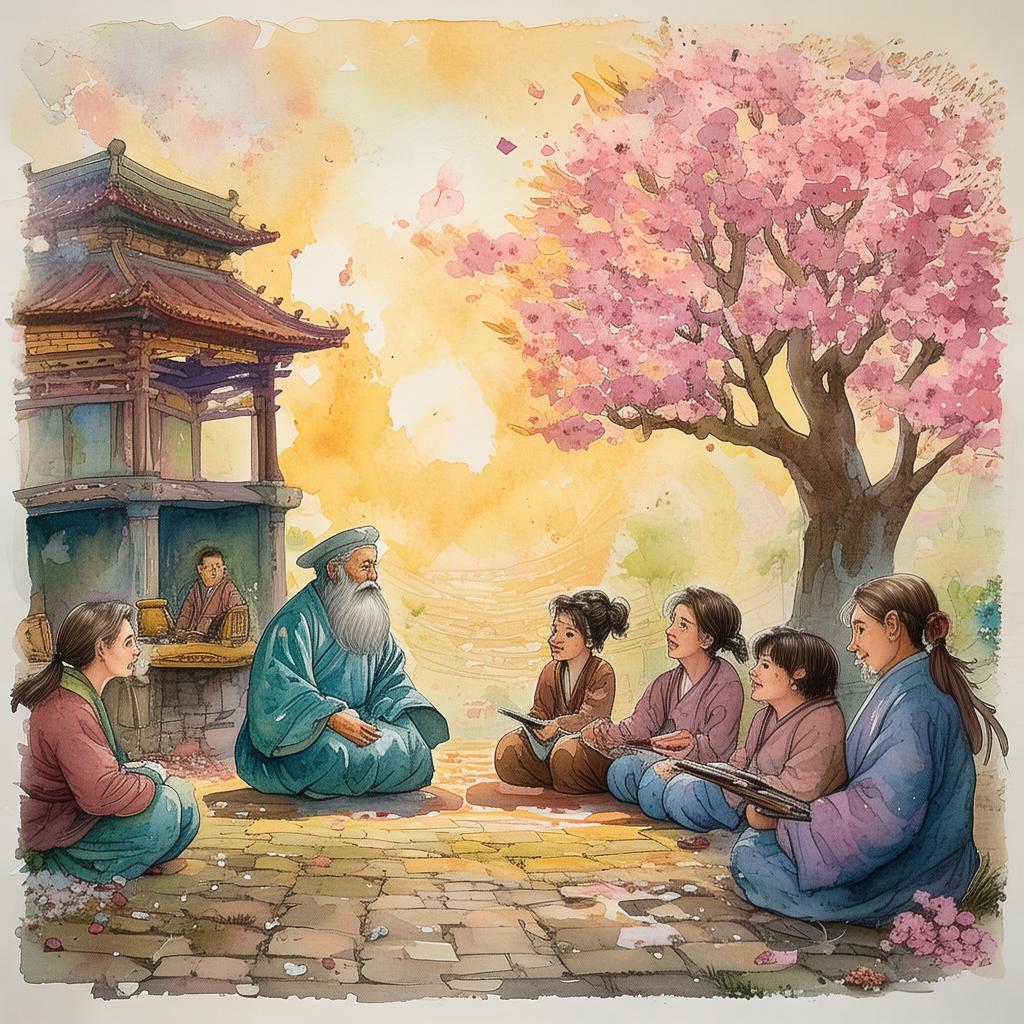The Scribe's Paradox: A Tale of False Narratives
In the bustling city of Chang'an during the Tang Dynasty, there lived a scribe named Wen. Renowned for his meticulous penmanship and keen intellect, Wen was often called upon to record the histories of the day. His name was whispered in hushed tones, for it was said that Wen could write the truth or the lie with equal ease.
One fateful evening, as the ink dried on a scroll depicting the great victory of the emperor's troops, Wen found himself staring at the words. The scroll, meant to be a testament to the bravery of the soldiers, carried a tale that did not sit well with him. He knew the truth, but the scribe's loyalty to the throne demanded he adhere to the official narrative.
Wen's internal conflict reached a boiling point when he encountered an old mentor, Master Li, who had once been a trusted scribe himself. Master Li, now a shadow of his former self, revealed a chilling secret: the emperor had ordered the destruction of any records that contradicted his rule. Master Li's eyes held a sorrowful glint as he whispered, "The pen may be mightier than the sword, but it is also the instrument of tyranny."
Intrigued by Master Li's tale, Wen decided to embark on a journey to uncover the truth. He sought out ancient texts, spoken histories, and even the whispers of the common folk. Each piece of the puzzle he uncovered painted a more complex and often conflicting picture of the empire's history.
The journey led Wen to the remote mountains where an ancient hermit lived, known for his vast knowledge of the past. The hermit, wise and enigmatic, listened to Wen's story and replied, "The truth is like a river, ever-changing and flowing. To capture it, one must be like the river, ever-adapting."
Armed with this wisdom, Wen returned to Chang'an, determined to write a narrative that would stand the test of time. He spent countless nights poring over his research, crafting sentences that would not only tell the story but also reveal the truths hidden within the lies.
As the scroll of his new narrative took shape, Wen found himself facing the ultimate test of his loyalty. The emperor, informed of Wen's work, summoned him to the palace. "You are a scribe, Wen. Your duty is to record what I say, not what you believe to be true," the emperor decreed.
Wen, with a calm resolve, replied, "My lord, I have come to understand that the duty of a scribe is to the truth, not to the throne. The pen may be your instrument of power, but it is my instrument of justice."
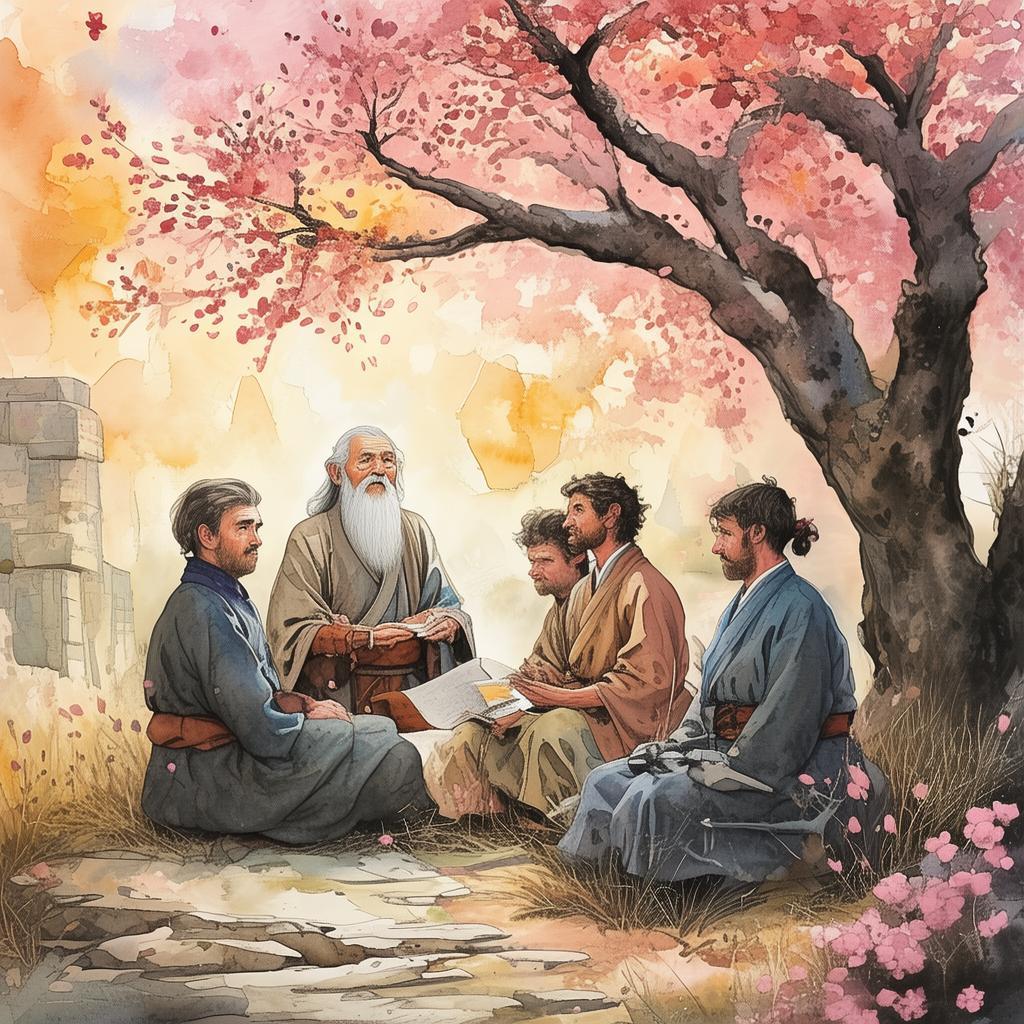
The emperor's face turned pale with anger, but Wen's resolve did not falter. He presented his scroll to the emperor, a testament to the real events of the empire's history, free of embellishments and lies.
The emperor, taken aback by Wen's courage, realized that the truth was more powerful than any narrative he could impose. He decreed that from that day forward, scribes would be free to record the truth as they saw it, and thus began a new era of transparency in the court.
Wen's journey had not only uncovered the truth but had also set a precedent for future generations. His name was remembered not just as a scribe, but as the man who dared to challenge the narrative and write the truth.
The Scribe's Paradox: A Tale of False Narratives, became a legend, a story that echoed through the ages, reminding all that the pen, when wielded with integrity, could be the greatest weapon against tyranny.
✨ Original Statement ✨
All articles published on this website (including but not limited to text, images, videos, and other content) are original or authorized for reposting and are protected by relevant laws. Without the explicit written permission of this website, no individual or organization may copy, modify, repost, or use the content for commercial purposes.
If you need to quote or cooperate, please contact this site for authorization. We reserve the right to pursue legal responsibility for any unauthorized use.
Hereby declared.

